Cricket has long been a source of unity, pride, and intense rivalry across Asia. Among the major cricket tournaments that have captured the imagination of millions, the Asia Cup stands tall. Since its debut in 1984, the Asia Cup has evolved into a tournament where prestige meets passion, and cricketing giants collide in unforgettable encounters.
What makes this event particularly special is the way it brings together neighboring countries in a battle for continental supremacy. Over the years, the tournament has witnessed some of the most thrilling matches, career-defining performances, and historic upsets. Let’s take a deep dive into every edition of this tournament, match by match, and revisit the glorious history behind the Asia Cup Winners List.
1. India vs Sri Lanka: 1984 (Winner – India)
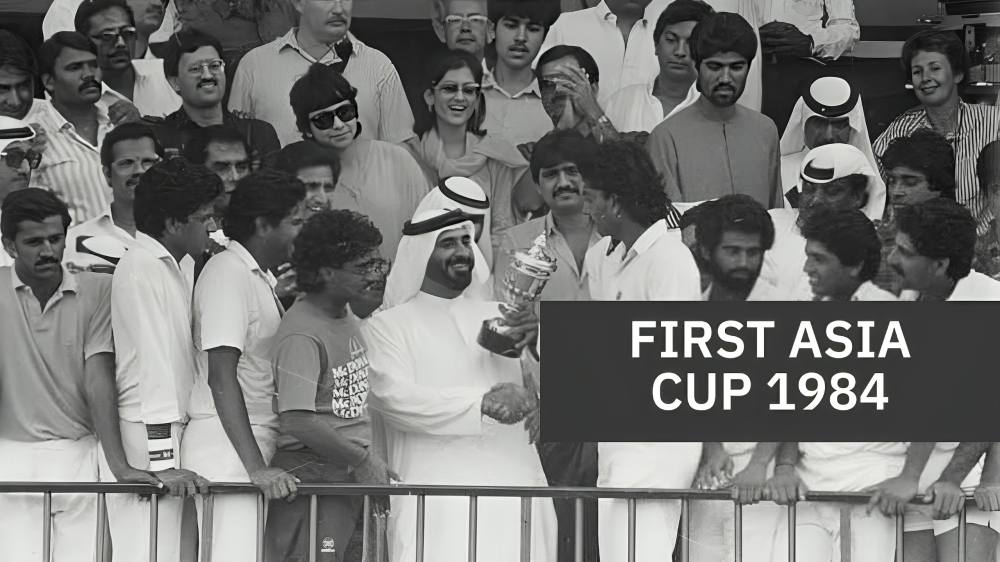
The inaugural Asia Cup in 1984 was a groundbreaking moment in Asian cricket history, establishing a continental competition that would bring together the region’s top cricketing nations in a spirit of rivalry and camaraderie. This first edition was held in Sharjah, United Arab Emirates, a neutral venue that quickly became a beloved home for many high-stakes cricket tournaments, especially for Asian teams. Unlike the knockout formats seen in later years, this tournament followed a straightforward round-robin format featuring just three teams: India, Sri Lanka, and Pakistan.
Though the tournament did not have an official “final,” the results of the matches were clear enough to crown a winner. India, boasting an experienced and talented squad, dominated the competition from start to finish. Legendary players like Sunil Gavaskar, a master technician and one of the finest batsmen of his generation, and Kapil Dev, the charismatic and dynamic all-rounder, led India’s charge. Their leadership and performances were crucial in overcoming the challenges posed by Sri Lanka and Pakistan.
India’s bowling attack proved to be particularly effective, curtailing opponents and applying relentless pressure throughout the matches. The experienced batting lineup ensured that India chased down targets with confidence or set formidable totals for their rivals. This collective strength enabled India to win both their games convincingly, cementing their place as the first champions of the Asia Cup.
This 1984 victory was not just about a trophy; it marked the beginning of a dominant era for India in Asian cricket. India’s triumph was celebrated widely and set the tone for the tournament’s future prestige. This first-ever win placed India at the very top of the Asia Cup Winners List and ignited intense competition and passion for the tournament in the years that followed.
2. Sri Lanka vs Pakistan: 1986 (Winner – Sri Lanka)

The 1986 edition of the Asia Cup was a pivotal tournament that saw the competition mature and new cricketing powers rise. Held in Sri Lanka, the tournament was infused with the energy and support of the home crowd. Playing on familiar pitches and in front of passionate fans gave Sri Lanka a psychological and tactical advantage that they seized with determination.
Sri Lanka’s cricketing history until then had been marked by steady growth, but this tournament provided an opportunity for them to announce themselves as a force to be reckoned with. The final match was a gripping encounter against Pakistan, a team known for its fierce bowling attack and aggressive batting.
Sri Lanka’s chase in the final was tense and thrilling. Under pressure, the Sri Lankan batsmen showed grit and composure beyond their years. Captain Arjuna Ranatunga played a defining innings, anchoring the innings with calmness and tactical acumen. His ability to rotate the strike, build partnerships, and pace the chase was instrumental.
Ultimately, Sri Lanka achieved the target with five wickets in hand, securing their first Asia Cup title in front of an ecstatic home crowd. This win was a watershed moment for Sri Lankan cricket. It validated their growing status and earned them a proud spot on the Asia Cup Winners List, signaling that the cricketing landscape in Asia was becoming more competitive and unpredictable.
3. India vs Sri Lanka: 1988 (Winner – India)

By 1988, the Asia Cup had expanded its footprint, with Bangladesh hosting the tournament for the first time. The choice of Dhaka as the venue marked a new chapter, showcasing the tournament’s increasing importance in the region. The competition again culminated in a final between two familiar adversaries: India and Sri Lanka.
India entered the tournament determined to reclaim their early supremacy after Sri Lanka’s rise in 1986. The Indian team fielded a balanced lineup with a strong batting order and a potent bowling attack. In the final, India’s bowlers delivered a disciplined performance that kept Sri Lanka’s batsmen restricted and prevented any big partnerships from forming.
In response, India’s top-order batsmen executed a calm and calculated chase. Their measured approach allowed them to steadily accumulate runs without undue risk. This well-rounded performance led India to a comfortable six-wicket victory.
This triumph was significant for India as it reaffirmed their dominance in the Asian cricket scene. The victory also bolstered their standing on the Asia Cup Winners List, now with two titles to their name. Moreover, the successful hosting of the tournament in Bangladesh demonstrated Asia Cup’s growing influence and reach.
4. India vs Sri Lanka: 1990-91 (Winner – India)
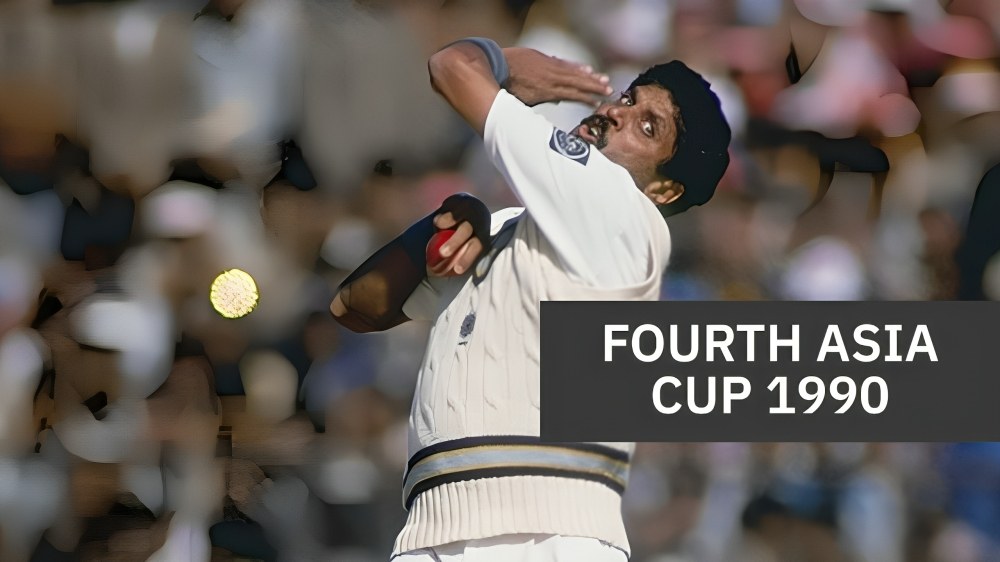
The 1990-91 Asia Cup was hosted by India, a nation deeply passionate about cricket. This edition offered India the chance to consolidate their position as the leading cricketing nation in Asia, especially on home soil. Once again, India and Sri Lanka found themselves facing off in the final, continuing their intense rivalry that had become the highlight of the tournament.
The Indian side was captained by Mohammad Azharuddin, a stylish and composed batsman known for his wristy strokes and calm demeanor under pressure. Azharuddin led from the front with an outstanding performance that inspired his team and put pressure on the Sri Lankan bowlers.
India’s bowlers played a crucial role in restricting Sri Lanka’s batting lineup. Their ability to maintain tight lines, create wicket-taking opportunities, and contain runs helped India seize control of the match early on.
In the final analysis, India chased down the target with seven wickets in hand, a solid victory that brought their Asia Cup title count to three. This win was a clear statement of India’s growing dominance in Asia, further cementing their legacy on the Asia Cup Winners List and providing fans with unforgettable cricketing memories.
5. India vs Sri Lanka: 1995 (Winner – India)
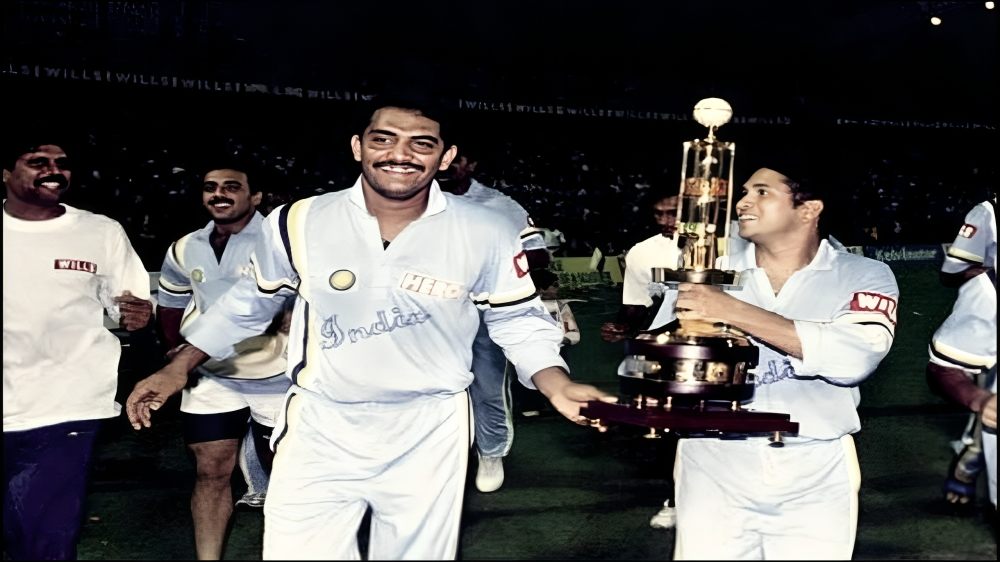
The Asia Cup returned to the United Arab Emirates in 1995, revisiting the neutral ground where the tournament had first been played. By this time, the India-Sri Lanka rivalry in Asia Cup finals had become something of a tradition, drawing intense interest from fans across the continent.
India entered this tournament with a squad rich in both youth and experience. One standout player was Sachin Tendulkar, a prodigious batting talent who had by then become a global cricket icon. Tendulkar’s contributions throughout the tournament, and especially in the final, were instrumental in India’s success.
In the championship match, India produced a commanding performance, winning by an emphatic 8 wickets. Their bowlers contained the Sri Lankan batsmen effectively, while India’s batsmen chased the target with skill and confidence, ensuring minimal drama.
This fourth Asia Cup title solidified India’s position as the most successful team in the tournament’s history up to that point. The victory enhanced India’s status atop the Asia Cup Winners List and underscored their consistency and excellence in regional cricket tournaments.
6. Sri Lanka vs India: 1997 (Winner – Sri Lanka)
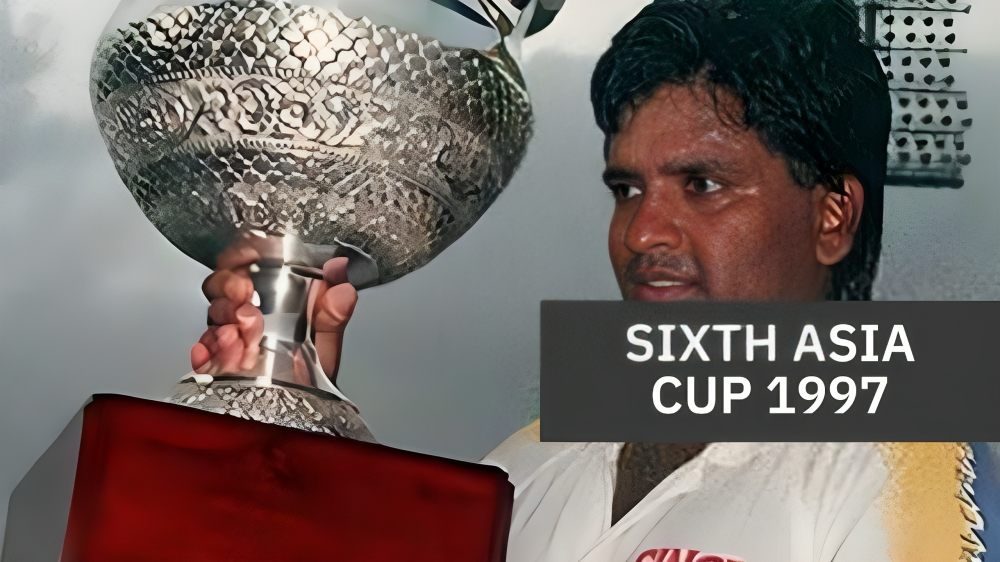
After a string of India triumphs, the 1997 Asia Cup was a moment of resurgence for Sri Lanka. Hosted on home soil, Sri Lanka was motivated to reclaim the trophy and assert their growing cricketing prowess in Asia. This tournament marked a turning point in the Asia Cup history, as Sri Lanka’s cricket team showcased its blend of explosive batting and world-class spin bowling.
The final against India was a thrilling encounter. Sri Lanka’s explosive opener, Sanath Jayasuriya, set the tone with his aggressive batting, taking the attack to the Indian bowlers from the outset. Jayasuriya’s power hitting was complemented by the subtle yet deadly spin of Muttiah Muralitharan, whose bowling mystified the Indian batsmen and helped stifle their scoring.
Sri Lanka’s all-round effort culminated in an impressive 8-wicket victory, reclaiming the Asia Cup and lifting their second title. This win marked a shift in regional cricket dynamics, with Sri Lanka emerging as a genuine challenger to India’s dominance. The victory was celebrated enthusiastically across Sri Lanka and placed them firmly on the Asia Cup Winners List as one of Asia’s cricketing giants.
7. Pakistan vs Sri Lanka: 2000 (Winner – Pakistan)
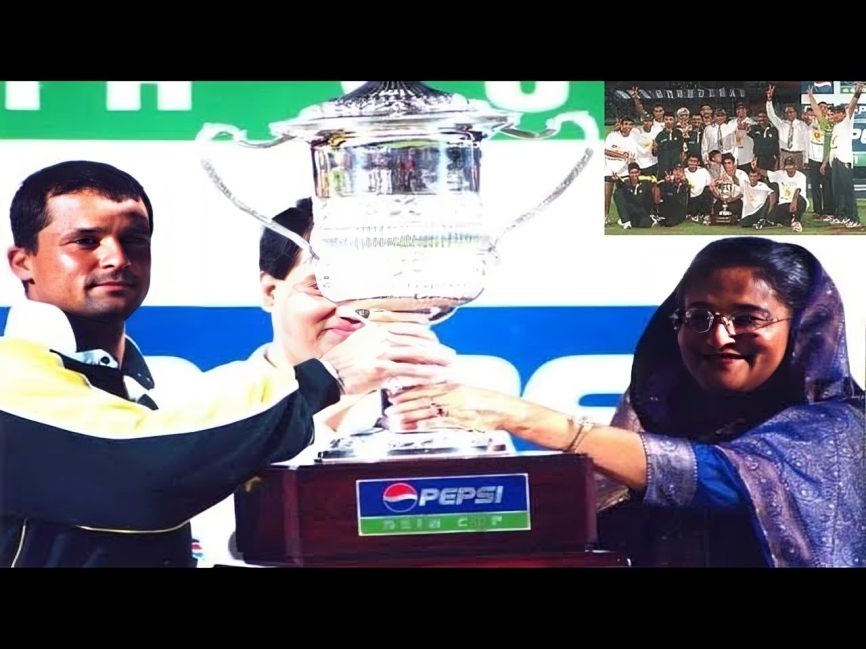
The turn of the millennium brought a new champion to the Asia Cup stage. The 2000 tournament, held once again in Dhaka, Bangladesh, featured a final between Pakistan and Sri Lanka — two fierce competitors with strong cricketing traditions.
Pakistan had been searching for their first Asia Cup title, and this tournament presented the perfect opportunity. In the final, Pakistan batted first and posted a challenging total, thanks in large part to a pivotal innings from the elegant and powerful batsman Inzamam-ul-Haq. His ability to anchor the innings and accelerate at crucial moments proved vital.
Sri Lanka, known for their chasing prowess, faced a disciplined Pakistan bowling attack led by Saqlain Mushtaq. Saqlain’s crafty spin bowling confounded the Lankan batsmen and helped Pakistan keep the run rate in check while taking key wickets.
Ultimately, Pakistan defended their total successfully, winning by 39 runs. This hard-fought victory gave Pakistan their first Asia Cup title, a milestone that added a new chapter to the Asia Cup Winners List. It was a proud moment for Pakistan cricket and a testament to their perseverance and skill on the Asian stage.
8. Sri Lanka vs India: 2004 (Winner – Sri Lanka)
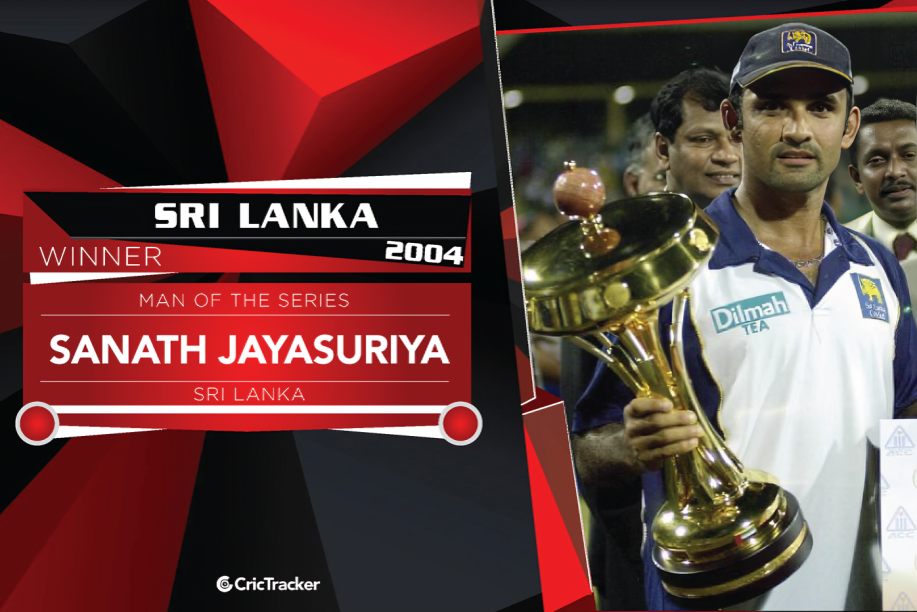
The 2004 Asia Cup returned to Sri Lanka, where the tournament had witnessed some of its most memorable moments. This edition once again featured a highly competitive final between the two regional heavyweights: Sri Lanka and India.
Sri Lanka’s team was buoyed by the presence of Sanath Jayasuriya, whose experience and aggressive batting made him a constant threat. In the final, Jayasuriya delivered a masterclass innings, scoring a brilliant century that laid the foundation for Sri Lanka’s total.
India, despite their valiant efforts, fell short by 25 runs. Sri Lanka’s bowlers backed up their batting performance by maintaining pressure and taking timely wickets, preventing India from mounting a successful chase.
With this win, Sri Lanka secured their third Asia Cup title. The victory underscored Sri Lanka’s status as a dominant force in Asian cricket, bringing them level with India in terms of Asia Cup triumphs and intensifying the regional rivalry. The 2004 victory added an important chapter to the Asia Cup Winners List and energized cricket fans across Asia.
Also Read:
- Top 10 Players with the Most Runs in ODI Asia Cup History
- Top 10 Players with the Most Hundreds in Asia Cup ODI History
9. Sri Lanka vs India: 2008 (Winner – Sri Lanka)
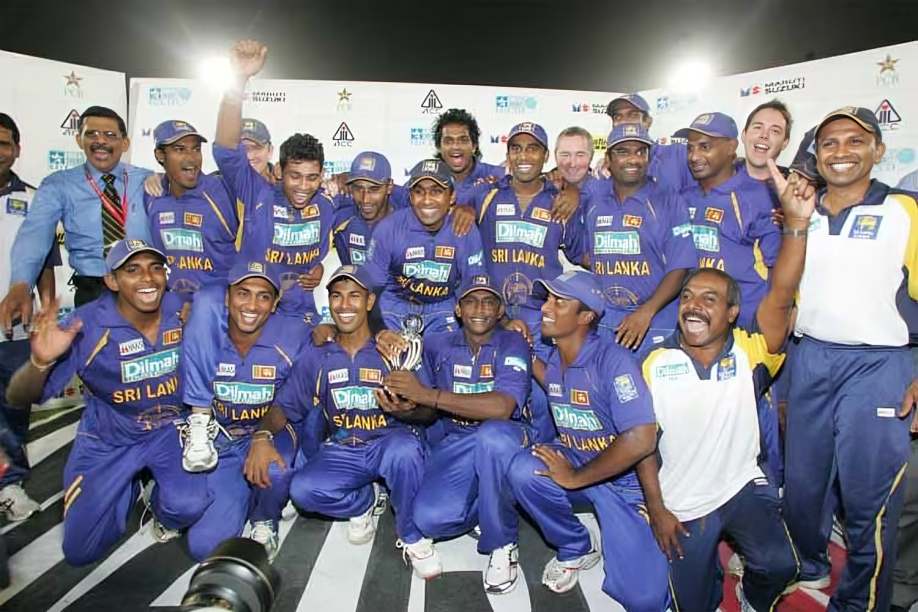
The 2008 Asia Cup, hosted by Pakistan, marked another thrilling chapter in the history of this prestigious tournament. Expectations were high, as the final once again featured the classic rivalry between India and Sri Lanka — two cricketing powerhouses of the region.
However, this time the contest turned decisively in Sri Lanka’s favor. The Lankan side produced a dominant and memorable performance, spearheaded by the extraordinary bowling spell of Ajantha Mendis. Mendis, relatively new to international cricket but quickly gaining acclaim for his mysterious spin variations, bewildered the Indian batsmen throughout the match. His spell was nothing short of historic — he claimed 6 wickets for a mere 13 runs, dismantling the Indian batting lineup with unrelenting precision.
Sri Lanka’s aggressive batting and clinical bowling led to a resounding 100-run victory over India, a margin that underscored their complete dominance in that final. This victory was hugely significant, as it marked Sri Lanka’s fourth Asia Cup title — a major milestone that elevated them further up the Asia Cup Winners List. The win also cemented Mendis’s place among the tournament’s standout performers and showcased Sri Lanka’s continued strength in Asian cricket.
10. India vs Sri Lanka: 2010 (Winner – India)
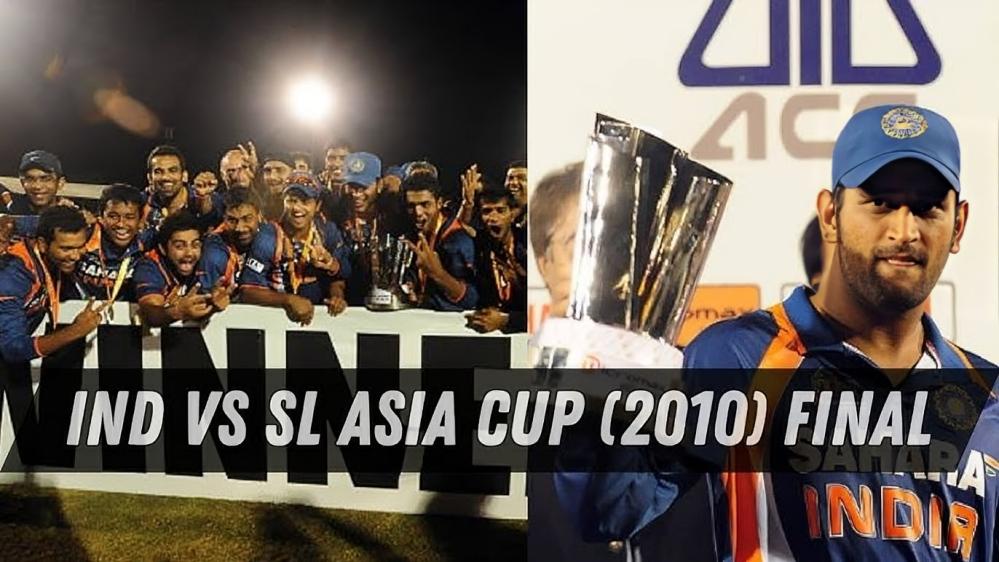
The 2010 Asia Cup brought the spotlight back to India, who had been eager to reclaim supremacy after Sri Lanka’s commanding victory two years earlier. The tournament culminated in a highly anticipated final played at Dambulla, a venue known for its picturesque setting and spin-friendly pitches.
India entered the final with confidence and delivered an emphatic performance. Their bowling attack was especially impressive, with fast bowler Ashish Nehra leading the charge by wreaking havoc on the Sri Lankan top order. His pace and swing made scoring difficult, and his ability to strike early was a crucial factor in restricting Sri Lanka to a manageable total.
In the chase, India’s middle order, anchored by Dinesh Karthik’s composed innings, paced the run chase skillfully. The team’s balanced approach ensured they steadily closed in on the target without succumbing to pressure.
India’s 81-run victory was a statement of intent — a clear return to form and dominance in the Asia Cup arena. This triumph earned India their fifth Asia Cup title and propelled them ahead once more on the Asia Cup Winners List, rekindling their longstanding rivalry with Sri Lanka.
11. Pakistan vs Bangladesh: 2012 (Winner – Pakistan)
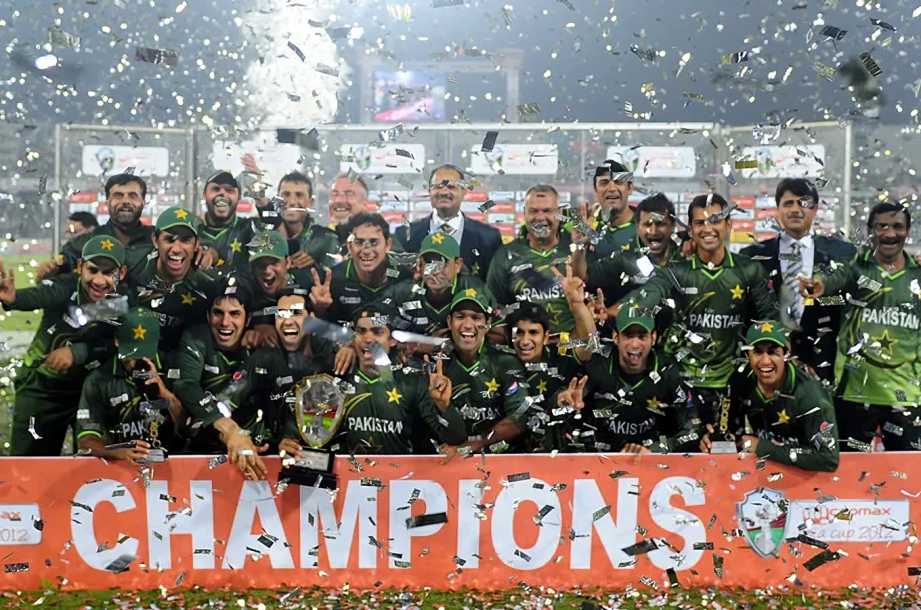
The 2012 Asia Cup, held in Mirpur, Bangladesh, was memorable for the emergence of a new contender and one of the most nail-biting finals in the tournament’s history. Bangladesh, traditionally considered the underdogs, made a historic run to their first-ever Asia Cup final, thrilling local fans and cricket enthusiasts alike.
Facing them in the final was a seasoned Pakistan team, eager to claim their second Asia Cup title after a long wait. The match was a tense, hard-fought battle that went down to the wire, captivating everyone watching.
Pakistan set a competitive target, but Bangladesh fought valiantly in the chase. The match swung back and forth, with both teams displaying moments of brilliance and nerves of steel. In a dramatic climax, Pakistan managed to hold their nerve, clinching victory by just 2 runs in the final over.
Although Bangladesh narrowly lost, their valiant performance earned them widespread respect and showed that the team had matured significantly on the international stage. Pakistan’s victory, meanwhile, was a hard-earned triumph that added their second Asia Cup title to the Winners List and reaffirmed their status as a cricketing powerhouse in Asia.
12. Sri Lanka vs Pakistan: 2014 (Winner – Sri Lanka)
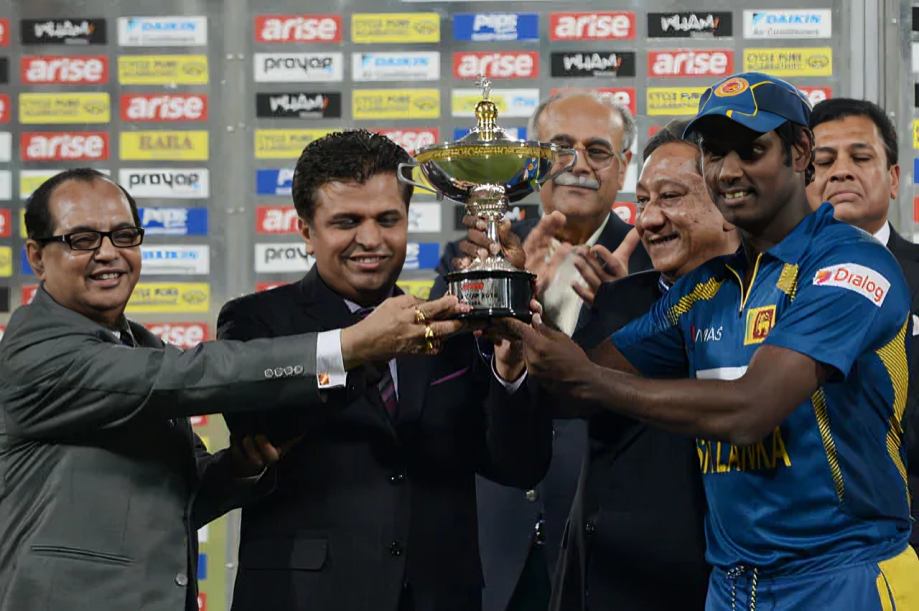
In 2014, Bangladesh once again hosted the Asia Cup, continuing to build its reputation as a key venue for major regional cricket tournaments. The final pitted Sri Lanka against Pakistan — two teams with rich cricketing traditions and a fierce rivalry.
Sri Lanka batted second in the final and faced a challenging target set by Pakistan. However, Sri Lanka’s innings was marked by a blend of resilience and flair. Key contributions from Lahiru Thirimanne and the ever-dependable Kumar Sangakkara were pivotal in steering their team to victory.
Thirimanne’s steady stroke play and Sangakkara’s masterful innings provided the backbone for the chase, guiding Sri Lanka home with five wickets to spare. The win was a proud moment for Sri Lanka, marking their fifth Asia Cup title — a milestone that equaled India’s record at that time and solidified their place at the summit of the Asia Cup Winners List.
This victory not only demonstrated Sri Lanka’s skill and tenacity but also intensified the competition among Asian cricket giants, promising even fiercer contests in future editions.
13. India vs Bangladesh: 2016 (Winner – India)
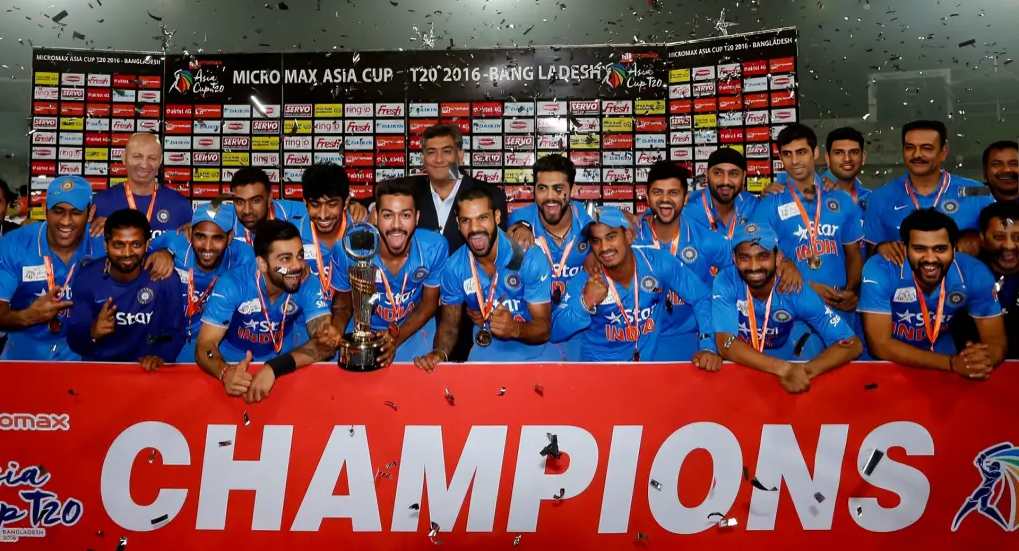
The 2016 Asia Cup was unique in that it adopted the T20 format to better prepare teams for the upcoming ICC World Twenty20 tournament. This change added a new dimension of excitement and urgency to the games, with fast-paced cricket and thrilling finishes.
The final saw India face Bangladesh once again in Mirpur, a venue where Bangladesh enjoyed passionate home support. Despite the pressure of the T20 format and the enthusiastic crowd, India demonstrated their experience and skill, chasing down the revised target comfortably despite interruptions caused by rain.
India’s opening batsman Shikhar Dhawan dazzled with aggressive stroke play, providing the perfect start and setting the tone for the innings. Meanwhile, captain MS Dhoni’s calm and tactical leadership ensured the chase was steady and controlled, guiding the team to victory by 8 wickets.
This triumph was important for India as it marked their continued dominance in the Asia Cup, even in the evolving T20 format. The win added another title to their tally and maintained their leadership position on the Asia Cup Winners List.
14. India vs Bangladesh: 2018 (Winner – India)
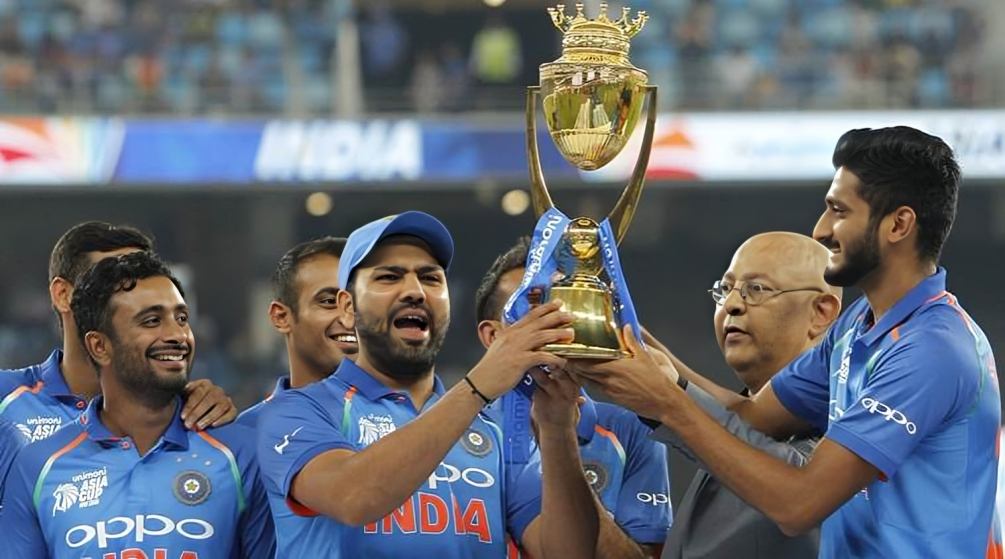
The 2018 Asia Cup final was yet another thrilling chapter in the history of this tournament, featuring a gripping contest between India and Bangladesh. Held in Dubai, a neutral venue that has become a regular host, the match was marked by drama, resilience, and last-ball tension.
The game saw intense competition, with Bangladesh once again showing their growing prowess and willingness to challenge the region’s giants. The climax was a nail-biting finish where India needed just a few runs off the final delivery.
Kedar Jadhav, who had battled through injury during the match, emerged as the unlikely hero. His gutsy batting and nerves of steel helped India cross the finish line with just three wickets remaining, winning by the narrowest of margins.
This victory gave India their seventh Asia Cup title, reinforcing their unmatched record in the tournament and once again placing them firmly at the top of the Asia Cup Winners List. It was a classic final that showcased the increasing competitiveness of Asian cricket.
15. Sri Lanka vs Pakistan: 2022 (Winner – Sri Lanka)
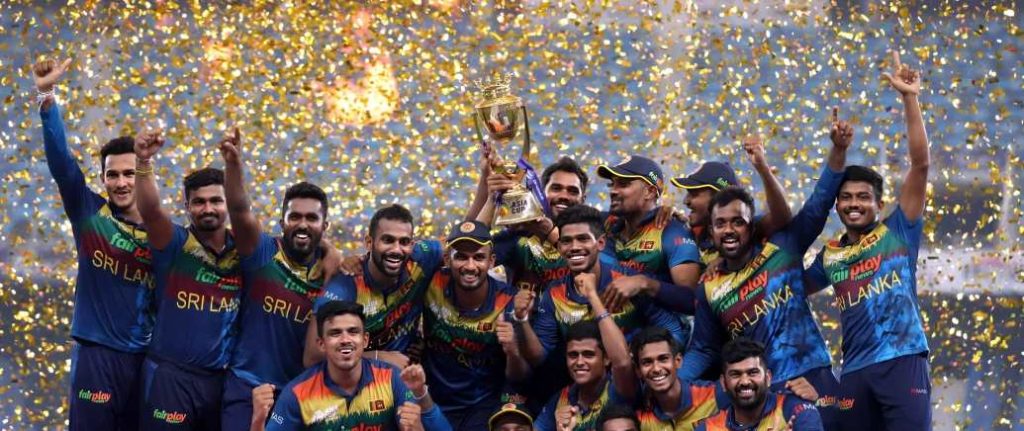
After a hiatus caused by global events, the 2022 Asia Cup returned with great fanfare and high expectations. The tournament was hosted in Sri Lanka, where cricket fans eagerly awaited thrilling encounters among the region’s best teams.
Sri Lanka, despite a somewhat uneven start to the tournament, found their rhythm at the perfect moment. In a highly anticipated final against Pakistan, Sri Lanka rose to the occasion with a well-rounded performance.
Bhanuka Rajapaksa was the standout star for Sri Lanka, delivering an inspirational innings that lifted the entire team’s spirits. His aggressive batting laid the foundation for a competitive total that put pressure on Pakistan.
Sri Lanka’s bowlers complemented the batting effort by maintaining disciplined lines and taking key wickets. In the end, Sri Lanka triumphed by 23 runs, capturing their sixth Asia Cup title.
This victory was celebrated widely in Sri Lanka, a proud reminder of their rich cricketing heritage and an emphatic statement of their enduring strength in the Asia Cup history and Winners List.
16. India vs Sri Lanka: 2023 (Winner – India)
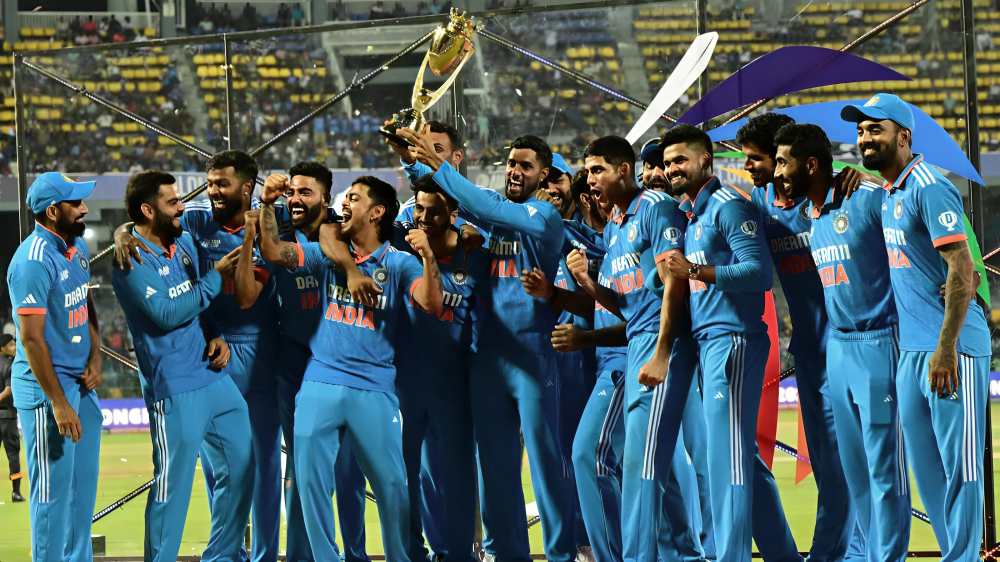
The most recent edition of the Asia Cup in 2023 was a spectacular display of skill and dominance, with Pakistan and Sri Lanka jointly hosting the tournament. Once again, the final set the stage for a classic showdown between India and Sri Lanka, reigniting one of the most intense rivalries in Asian cricket.
India produced a ruthless and clinical performance in the final. Their bowling attack, led by Mohammed Siraj, dismantled the Sri Lankan batting lineup with precision and pace. Siraj’s devastating spell saw him claim 6 wickets while conceding only 21 runs, reducing Sri Lanka to a mere 50 runs all out — one of the lowest totals in Asia Cup final history.
India chased down the small target with remarkable ease, completing the victory in just 6.1 overs without losing a wicket. This comprehensive win secured India their eighth Asia Cup title, further strengthening their position as the most successful team in the history of the tournament.
This victory not only enhanced India’s legacy on the Asia Cup Winners List but also reaffirmed their status as the dominant cricketing force in Asia, promising more enthralling contests in the years to come.
Complete Asia Cup Winners List from 1984 to 2023
Here’s a summary of all the Asia Cup champions:
| Edition | Year | Winner | Won by | Runner-up | Host |
|---|---|---|---|---|---|
| 1st | 1984 | India | N/A | Sri Lanka | UAE |
| 2nd | 1986 | Sri Lanka | 5 wickets | Pakistan | Sri Lanka |
| 3rd | 1988 | India | 6 wickets | Sri Lanka | Bangladesh |
| 4th | 1990-91 | India | 7 wickets | Sri Lanka | India |
| 5th | 1995 | India | 8 wickets | Sri Lanka | UAE |
| 6th | 1997 | Sri Lanka | 8 wickets | India | Sri Lanka |
| 7th | 2000 | Pakistan | 39 runs | Sri Lanka | Bangladesh |
| 8th | 2004 | Sri Lanka | 25 runs | India | Sri Lanka |
| 9th | 2008 | Sri Lanka | 100 runs | India | Pakistan |
| 10th | 2010 | India | 81 runs | Sri Lanka | Sri Lanka |
| 11th | 2012 | Pakistan | 2 runs | Bangladesh | Bangladesh |
| 12th | 2014 | Sri Lanka | 5 wickets | Pakistan | Bangladesh |
| 13th | 2016 | India | 8 wickets | Bangladesh | Bangladesh |
| 14th | 2018 | India | 3 wickets | Bangladesh | UAE |
| 15th | 2022 | Sri Lanka | 23 runs | Pakistan | Sri Lanka |
| 16th | 2023 | India | 10 wickets | Sri Lanka | Sri Lanka/Pakistan |
FAQs
Q1. Who has won the most Asia Cup titles?
India holds the record with 8 Asia Cup titles, making them the most successful team in the tournament’s history.
Q2. Has Bangladesh ever won the Asia Cup?
No, Bangladesh has reached the finals multiple times but has never won the Asia Cup.
Q3. What was the first Asia Cup final played?
The first Asia Cup in 1984 didn’t have a final match. India was declared the winner based on points.
Q4. Which year was the Asia Cup played in T20 format?
The 2016 Asia Cup was the first and only edition (until 2023) played in the T20 format instead of the usual ODI format.



